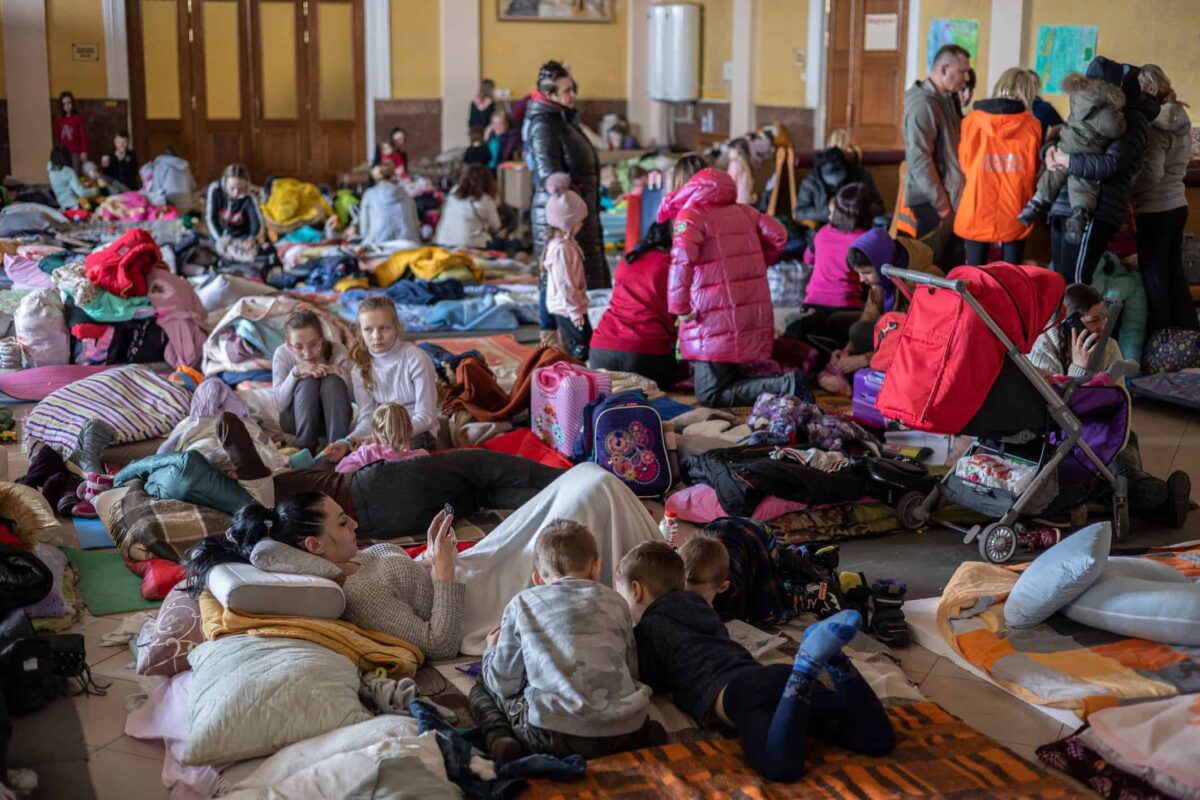Warsaw, PolandOn day four of our week-long trip to Poland, my colleague and I boarded a crowded city bus. Looking around at the other passengers, we wondered how many might be recent arrivals from Ukraine.
Within the first 30 days of Russia’s invasion of Ukraine, Warsaw’s population grew by 15 percent, according to the Union of Polish Metropolises. Rzeszów, a city close to the Ukrainian border where our Creative Associate International colleagues were visiting, had doubled in size during the same time.
As part of Creative’s overall efforts to understand the situation in Ukraine, the Center for Migration and Economic Stabilization focused on Ukrainians forcibly displaced due to the war. When the Center first surveyed Ukrainian refugees in April, most data collection efforts focused on humanitarian needs. Creative decided to take a longer view, aligning with recent calls from the World Bank and the United Nations to integrate development approaches early on in supporting displaced populations. Our study delved into Ukrainians’ financial security and livelihoods while living outside Ukraine.

During our June trip to Poland, we learned that the International Rescue Committee and Mercy Corps were turning their attention toward supporting people’s ability to find jobs in Poland. Their pivot aligned with Creative’s findings. Sixty-five percent of Ukrainians we surveyed in April were seeking to work abroad to sustain their livelihoods. Because of our first survey’s findings, we were able to share that language barriers were primary obstacles for finding work among our study participants.
Yet, as families struggle to navigate displacement from their homes, outside income supports, such as conditional cash transfers, are becoming even more critical. The Center’s follow-up survey in June revealed that a greater percentage of families relied on cash transfers to meet their basic needs than in April. These results contrast with a troubling theme that emerged in our meetings with international non-governmental organizations in Warsaw. Cash transfers to Ukrainians were expensive relative to other international contexts because of cost of living in Poland, and it was unclear how to sustain them.
As of July, the Polish government’s housing and transportation subsidies have expired, making living in Poland more expensive for Ukrainians. Adding to this, Ukrainians looking to move out of the private homes where they have been hosted by Polish families face higher rents and limited supply in city rental markets. One group we talked to, CoopTechHub, is taking an innovative approach to addressing this issue; they are working with local governments to promote relocation, services and job opportunities in smaller towns. CoopTechHub’s programming is for all residents in Poland, but they expect Ukrainian refugees will especially benefit.
In early March, when we were considering face-to-face interviews with Ukrainian refugees, our Polish colleagues described unprecedented numbers of Ukrainian families arriving at train and bus stations. The rate of Ukrainians fleeing has slowed down since then, according to the United Nations High Commissioner for Refugees. Nevertheless, more than a million Ukrainians with temporary protected status live in Poland. The sheer number of refugees’ living and working in Poland is liable to stir feelings of concern among the populace. Without proactive efforts to address narratives of economic competition and resource scarcity, the potential for Russia’s weaponizing the Ukrainian refugee crisis to destabilize Polish society is substantial.
Poland is now one of the top refugee-hosting countries in the world. At the university conference we joined in Warsaw, attendees highlighted shared values and people’s historic mobility between Ukraine and Poland as important facilitators for the continued support of Ukrainian refugees in Poland. Feelings of solidarity notwithstanding, it remains an open question as to how Poland will navigate Ukrainians’ integration in a way that most benefits the country economically and socially. Perhaps there are lessons Polish leaders can take from other host countries, such as Colombia’s pragmatic approach to framing a national narrative of Venezuelans’ integration.
To be sure, Ukrainians are already returning home. In our July design sessions for the Center’s third study of Ukrainians in Ukraine, our Ukrainian colleagues who had fled in February called in from their homes in Kyiv. That said, the war’s uncertainties engender uncertainties of Ukrainians’ return. In the meantime, refugees’ pursuit of housing and work in Poland will generate friction, and national narratives circumscribe available policy options to best address the situation at hand.
Mariellen Jewers, Ph.D., is the Technical Advisor to the Center for Migration and Economic Stabilization in 2021. Working under the auspice of Creative’s Office of Innovation, the Center drives expertise in the intersections of migration and economic growth, asset building and social inclusion.